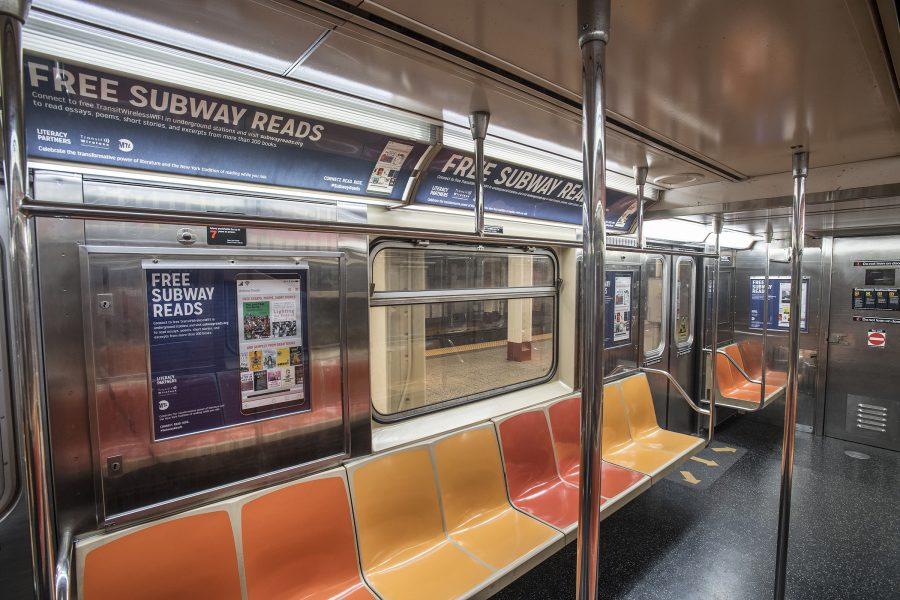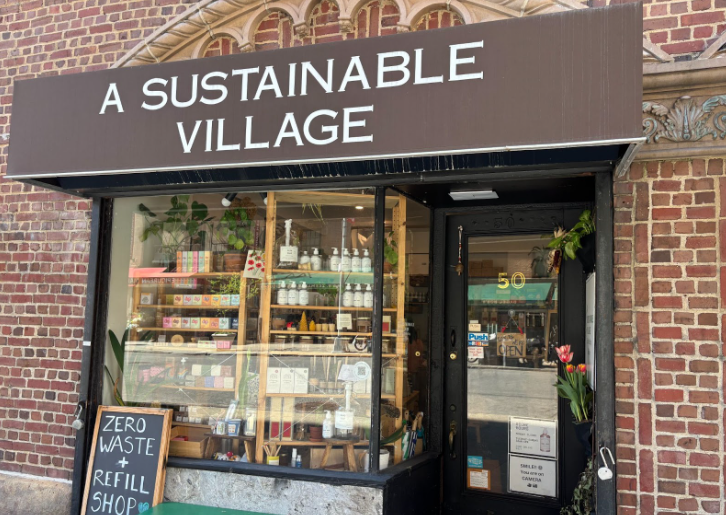The MTA’s campaign to promote literacy, “Subway Reads,” has returned for its third year. The campaign initiative, which began on Aug. 20, 2018, will be in motion until Oct. 19. The initiative allows commuters to access stories, poems, essays, and book excerpts from their favorite genres. Subway riders can simply connect to any Transit Wireless network on their mobile device and click on the subwayreads.org prompt. Once there, riders gain access to over 200 book excerpts. Some works are featured on their website, such as Walt Whitman’s “Song of Myself” and Roxane Gay’s “Bad Feminist,” as well as samples from up-and-coming books and new releases. Additionally, their website separates specific books by categories, including “Women’s Leadership,” “Immigrant Stories,” “Black Voices Matter,” “Young Audiences,” “New York Stories,” and “Sports.” They also offer lifestyle novels on career and business, parenting, food, and travel.
The MTA has partnered with Literacy Partners Inc. to promote adult and family literacy for low-income commuters; specifically, for commuters who may not have the time to go to a library or the funds to buy books. Literacy Partners uses social media platforms to convey how important literacy is in the digital age. Transit Wireless, the company that brings wireless connection to commuters on the train, has partnered with Literacy Partners to promote a “Subway Reads” contest through a social media campaign. The campaign, a “Selfie Contest,” ran from Aug. 20 to Sept. 27. To enter, commuters shared photos of themselves in front of the “Subway Reads” posters and tagged @TransitWireless and @LitPartners. Among the prizes were several Amazon Kindle Paperwhites and book bundles from participating publishers. Winners were selected every other Friday and notified via social media. The Transit Wireless and Literacy Partners then shared the winning photos across their social media channels, demonstrating the literacy organization’s commitment to staying relevant in a digital age.
Gohar Chichian is a University alumnus and the Senior Manager for Development and Communications at Literacy Partners. Literacy Partners believes “that reading is a cornerstone of democracy-it unites us, builds a community, and introduces us to new worlds,” Chichian said. With access to over 200 excerpts of books to read on the subway, improvement in literacy is key to academic success and ending multi-generational poverty for low-income families. “Subway Reads” allows the company to share “the joy of reading to all New Yorkers with categories that resonate with our mission and our students,” Chichian continued, such as their “Immigrant Voices” and “Women’s Leadership” sections.
Erica Johnson, chair of the English department at the University, told the Pace Press that the “Subway Reads” program is a fantastic idea. “Making books readily available via the MTA wi-fi encourages more reading,” Johnson stated, since many commuters read physical or digital books on the subway. In addition, Johnson said that the MTA needs to publicize this program more on all digital platforms so that a commuter waiting for a train “knows how to gain access to these books.” Johnson expressed that the subway was a space in which a program like “Subway Reads” could encourage increased literacy in digital and print forms for all commuters.
Additionally, Literacy Partners stated that their mission is to “develop the literacy and language skills [low-income parents] need to succeed in today’s world.” Alongside the “Subway Reads” initiative, Literacy Partners also offers free ESL classes for low-income parents in New York City, High School Equivalency classes, and early childhood education to boost both the children’s and the adults’ literacy growth. Furthermore, Literacy Partners has a “Books of Their Own” program, which creates home libraries for low-income households. They provide their students with 15 culturally appropriate books for each of their children to promote literacy among youth. They partner with leading publishers such as HarperCollins, Hachette Book Group, Penguin Random House, Simon and Schuster, W.W. Norton & Company, Houghton Mifflin Harcourt, and Macmillan to create these initiatives. Donors can support the “Books of Their Own” program by donating or purchasing unused and undamaged children’s books from their online wish list, as well as giving monetary donations to support their other literacy programs.
.@RolondaWatts is an Emmy-award nominated journalist who has been a big supporter of our work and literacy in #NYC! As a longtime supporter, she understands the impact of reading on families and in our communities! Enjoy her top #SubwayReads picks: https://t.co/nwqtu8n13j pic.twitter.com/l8UN0Q8lDN
— Literacy Partners (@LitPartners) October 16, 2018
According to the National Center for Education Statistics, “18 percent of U.S. adults performed at the lowest level of the [Program for the International Assessment of Adult Competencies] literacy scale (at or below Level 1).” Although they conceded that 13 percent of adults aged 16 to 65 have performed at the highest proficiency level on the PIAAC scale, the average for adults performing at the lowest level of PIACC is higher than the international average of 16 percent. The Migration Policy Institute cites that in the boroughs of Queens, Bronx, and Brooklyn, 24 to 28 percent of the population could not proficiently speak English from 2009 to 2013, suggesting that adult education and adult literacy still needs promotion.
Lack of literacy skills can lead to a lack of work or community opportunities. Increased literacy leads to higher average income, increased early childhood development, and civic engagement. It seems that the programs from Literacy Partners and the “Subway Reads” campaign can promote reading and involve low-income families, adults, and teenagers in reading digitally, to increase literacy.
We’re glad we could share the gift of reading with you – enjoy! 📚 What’s your favorite #SubwayReads pick @gracecookie? https://t.co/4qc6T5dSBT
— Literacy Partners (@LitPartners) October 17, 2018

















